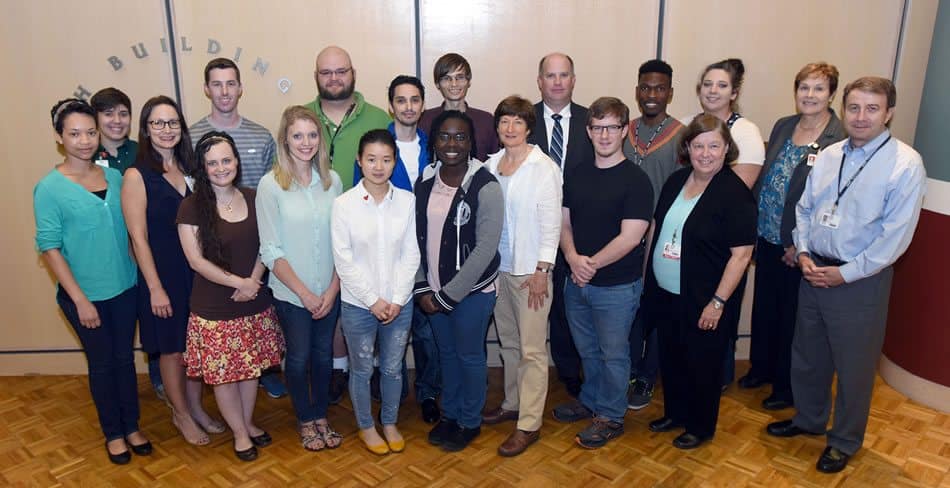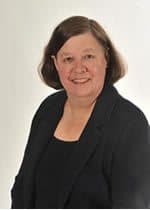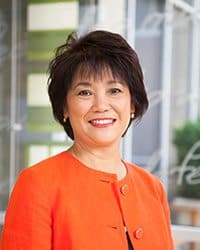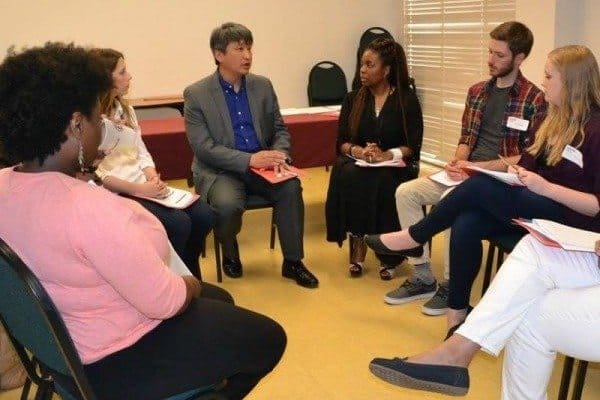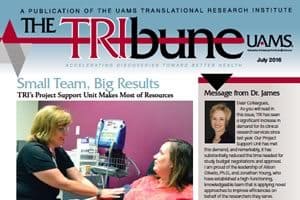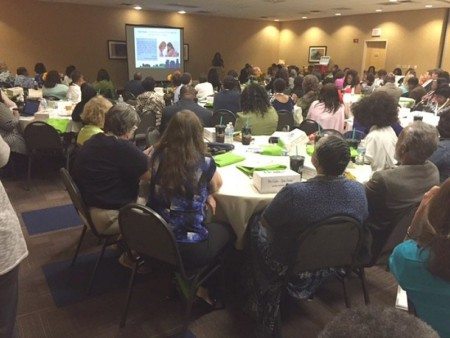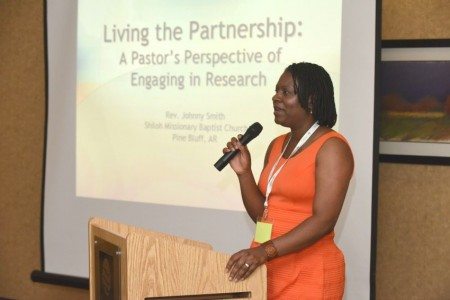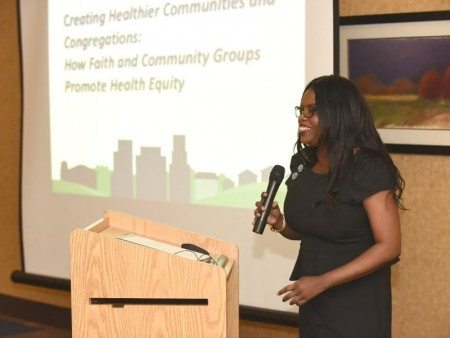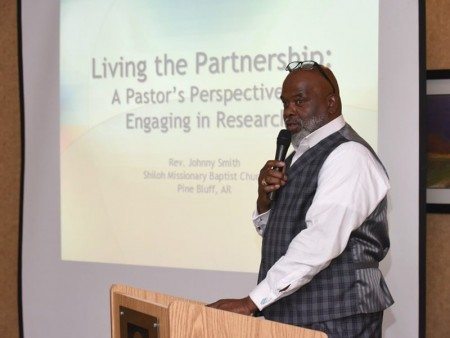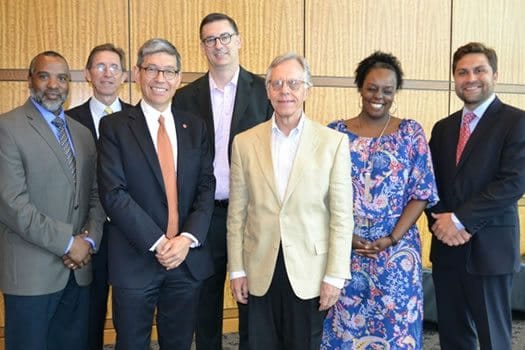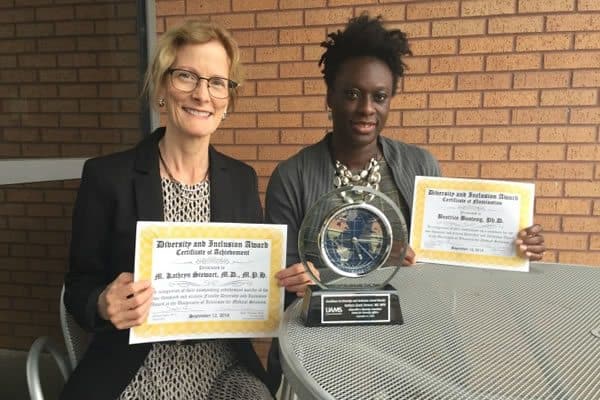
Strengthening diversity and inclusion in education, research and patient care is a top priority for the Translational Research Institute (TRI), and we are very proud to have TRI faculty recognized for their work in this area. Kate Stewart, M.D., M.P.H., won the 2016 Excellence in Diversity and Inclusion Award (faculty), and Beatrice Boateng, Ph.D., was a nominee for the award.
Stewart (left in photo) leads our community engagement team at TRI, and Boateng directs our evaluation program.
From the presentation ceremony/nomination:
“Over the course of her career, Dr. Stewart has built a reputation of being a champion for diversity and inclusion. She works tirelessly on behalf of underserved individuals, in particular for members of racial, sexual and gender minority groups. Kate has such a kind heart and a gentle spirit that she is able to welcome people of traditionally underrepresented groups. But don’t be fooled; just because she’s soft-spoken, she has a fire in her soul and a passionate commitment to creating an inclusive environment where everyone has equal access to healthcare and is represented equitably in every aspect of life in our communities. She has devoted her career to social justice work and demonstrates her commitment to the spirit of diversity by not participating on boards or committees unless they are diverse and inclusive of individuals from traditionally underrepresented groups. People trust her because they know she has their best interest at heart.”
“Dr. Boateng works to improve diversity among translational researchers at UAMS. She recently led a campus-wide assessment on the climate of diversity and inclusion and how it affects the recruitment and retention of researchers. She is involved in the UAMS Initiative for Maximizing Student Diversity, and has worked to enhance mentorships at UAMS. She believes everyone has something to contribute and that there are no boundaries that cannot be overcome. She naturally brings diverse groups together, resulting in a greater good for everyone.”
Read the UAMS news story: http://bit.ly/2cCaKks

